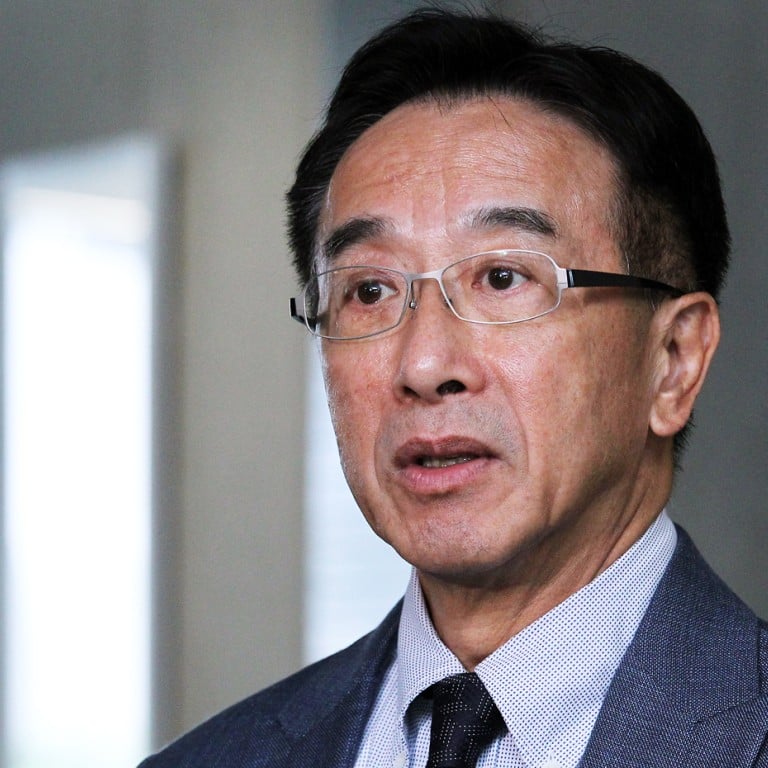
Hong Kong lawmaker James Tien: no need for Liberal Party to coordinate with pro-Beijing allies on elections
The Liberal Party has no plans to coordinate with its pro-establishment allies to avoid election clashes in the Legislative Council next year, according to the party’s outspoken leader.
James Tien Pei-chun, honorary chairman of the Liberal Party, said there was no need to have such coordination in Legco races, which adopted the proportional representation electoral system, as a candidate could win a seat simply by securing some 10 per cent of votes in a constituency.
“We are not taking away votes from pan-democratic or pro-establishment camps, only from our supporters,” Tien told DBC radio on Friday morning, adding that his party was targeting seven seats. At present the party has five lawmakers.
Tien was speaking in the wake of an apparent rift within the pro-Beijing camp of parties. His party colleague Tommy Cheung Yu-yan decided to give up his bid for Legco’s house committee chairmanship, the chamber’s number two position, after failing to secure enough support.
Lawmaker Andrew Leung Kwan-yuen, formerly of the Liberal Party and now leader of the Business and Professionals Alliance, has already helmed the legislature’s house committee for three years and looks set to remain in the post.
READ MORE: Hong Kong's Liberal Party challenges for key job in legislature, but denies it will deepen split among government allies
Tien said he did not understand the remarks by New People’s Party lawmaker Regina Ip Lau Suk-yee, who earlier said she would consult with the government to gauge its opinions on candidates for the chairmanship.
Some of his pro-establishment allies were unaware that the house committee chairman, apart from communicating with the government, also had a duty to facilitate discussions with lawmakers by interacting with them, Tien argued.
“Leung communicates very well with the pro-establishment camp, but Cheung has a better relationship with pan-democrats,” he said. Tien stated that Cheung could more effectively manage filibustering staged by radical lawmakers than Leung.
In the same radio programme, Leung earlier said he was surprised that Cheung announced he would run for the post last week.
Leung admitted it was a formidable challenge for the pro-establishment camp to coordinate smoothly, whether for chairmanship of the house committee or in upcoming elections. He called on his allies to stay united to avoid enabling pan-democrats to reap any benefits from a split in their ranks.
He also supported having a pan-democrat succeed outgoing lawmaker Ronny Tong Ka-wah to be the house committee’s deputy to foster communication with the camp.
In addition, Leung noted that the Business and Professionals Alliance was arranging a delegation to meet with state leaders in Beijing, eyeing a visit by the end of this year.

